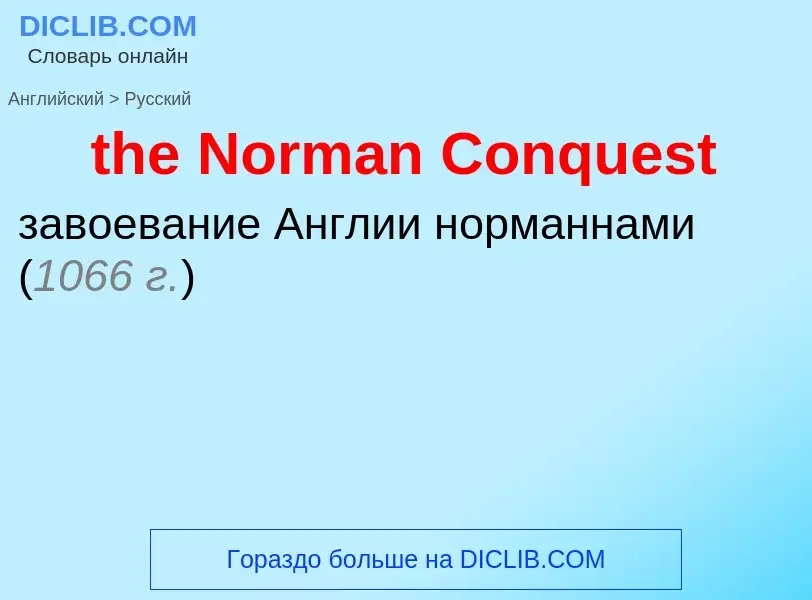Traducción y análisis de palabras por inteligencia artificial ChatGPT
En esta página puede obtener un análisis detallado de una palabra o frase, producido utilizando la mejor tecnología de inteligencia artificial hasta la fecha:
- cómo se usa la palabra
- frecuencia de uso
- se utiliza con más frecuencia en el habla oral o escrita
- opciones de traducción
- ejemplos de uso (varias frases con traducción)
- etimología
The Norman Conquest - traducción al ruso
синоним
Definición
Wikipedia
The Norman Conquest (or the Conquest) was the 11th-century invasion and occupation of England by an army made up of thousands of Norman, Breton, Flemish, and French troops, all led by the Duke of Normandy, later styled William the Conqueror.
William's claim to the English throne derived from his familial relationship with the childless Anglo-Saxon king Edward the Confessor, who may have encouraged William's hopes for the throne. Edward died in January 1066 and was succeeded by his brother-in-law Harold Godwinson. The Norwegian king Harald Hardrada invaded northern England in September 1066 and was victorious at the Battle of Fulford on 20 September, but Godwinson's army defeated and killed Hardrada at the Battle of Stamford Bridge on 25 September. Three days later on 28 September, William's invasion force of thousands of men and hundreds of ships landed at Pevensey in Sussex in southern England. Harold marched south to oppose him, leaving a significant portion of his army in the north. Harold's army confronted William's invaders on 14 October at the Battle of Hastings. William's force defeated Harold, who was killed in the engagement, and William became king.
Although William's main rivals were gone, he still faced rebellions over the following years and was not secure on the English throne until after 1072. The lands of the resisting English elite were confiscated; some of the elite fled into exile. To control his new kingdom, William granted lands to his followers and built castles commanding military strongpoints throughout the land. The Domesday Book, a manuscript record of the "Great Survey" of much of England and parts of Wales, was completed by 1086. Other effects of the conquest included the court and government, the introduction of the Norman language as the language of the elites, and changes in the composition of the upper classes, as William enfeoffed lands to be held directly from the king. More gradual changes affected the agricultural classes and village life: the main change appears to have been the formal elimination of slavery, which may or may not have been linked to the invasion. There was little alteration in the structure of government, as the new Norman administrators took over many of the forms of Anglo-Saxon government.

![Modern-day reconstruction of an Anglo-Saxon village at [[West Stow Anglo-Saxon Village]] in Suffolk Modern-day reconstruction of an Anglo-Saxon village at [[West Stow Anglo-Saxon Village]] in Suffolk](https://commons.wikimedia.org/wiki/Special:FilePath/Anglo-Saxon village at West Stow 6337 Keith Evans.jpg?width=200)



![Page describing [[Warwickshire]] in the [[Domesday Book]] of 1086 Page describing [[Warwickshire]] in the [[Domesday Book]] of 1086](https://commons.wikimedia.org/wiki/Special:FilePath/Domesday book--w.jpg?width=200)




